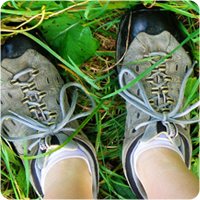Het arrangement Ecotourism h45 is gemaakt met Wikiwijs van Kennisnet. Wikiwijs is hét onderwijsplatform waar je leermiddelen zoekt, maakt en deelt.
- Auteur
- Laatst gewijzigd
- 11-05-2025 19:53:27
- Licentie
-
Dit lesmateriaal is gepubliceerd onder de Creative Commons Naamsvermelding-GelijkDelen 4.0 Internationale licentie. Dit houdt in dat je onder de voorwaarde van naamsvermelding en publicatie onder dezelfde licentie vrij bent om:
- het werk te delen - te kopiëren, te verspreiden en door te geven via elk medium of bestandsformaat
- het werk te bewerken - te remixen, te veranderen en afgeleide werken te maken
- voor alle doeleinden, inclusief commerciële doeleinden.
Meer informatie over de CC Naamsvermelding-GelijkDelen 4.0 Internationale licentie.
Aanvullende informatie over dit lesmateriaal
Van dit lesmateriaal is de volgende aanvullende informatie beschikbaar:
- Toelichting
- Deze les valt onder de arrangeerbare leerlijn van de Stercollectie voor Engels voor havo, leerjaar 4 en 5. Dit is thema 'Tourism'. Het onderwerp van deze les is: Ecotourism. Het klimaat wordt aangetast door de vele toeristen over de hele wereld elk jaar. Deze les gaat over toerisme waarbij milieuvriendelijke keuzes gemaakt worden rondom de reis, verblijf en activiteiten om zo minder of geen impact te hebben op het klimaat. De grammaticaopdrachten gaan over de simple past en present perfect met daarbij aanduidingen van tijd.
- Leerniveau
- HAVO 4; HAVO 5;
- Leerinhoud en doelen
- Engels;
- Eindgebruiker
- leerling/student
- Moeilijkheidsgraad
- gemiddeld
- Studiebelasting
- 3 uur 0 minuten
- Trefwoorden
- arrangeerbaar, ecotourism, engels, h45, milieuvriendelijk, present perfect, simple past, stercollectie, tijd
Gebruikte Wikiwijs Arrangementen
VO-content Engels. (2019).
Having a mobile phone - hv3
https://maken.wikiwijs.nl/151027/Having_a_mobile_phone___hv3

 The subject of this lesson is 'Ecotourism'.
The subject of this lesson is 'Ecotourism'.


 There is a trend in travel that has picked up a lot of steam over the last few years. That trend is called Eco-Tourism. As the environment has become more important to people over the last decade – and especially so in the last couple of years – companies around the world are trying to cash in on people’s willingness to spend lots of money in the name of environmental protection. Much of it is greenwashing though, or insincere and over-hyped attempts to be viewed as “green.” The travel industry has not been immune to this trend and many companies now tout their environmental credentials in an effort to lure customers and create a positive image.
There is a trend in travel that has picked up a lot of steam over the last few years. That trend is called Eco-Tourism. As the environment has become more important to people over the last decade – and especially so in the last couple of years – companies around the world are trying to cash in on people’s willingness to spend lots of money in the name of environmental protection. Much of it is greenwashing though, or insincere and over-hyped attempts to be viewed as “green.” The travel industry has not been immune to this trend and many companies now tout their environmental credentials in an effort to lure customers and create a positive image.
 Phrasal verbs
Phrasal verbs
 Let's look at the Simple Past and Present perfect- time expressions.
Let's look at the Simple Past and Present perfect- time expressions.
 In step 1 you have read an article about ecotourism: responsible travel that conserves the environment and improves the well-being of local people. So it minimizes the impact brought about by tourism on the environment.
In step 1 you have read an article about ecotourism: responsible travel that conserves the environment and improves the well-being of local people. So it minimizes the impact brought about by tourism on the environment. What have you learnt in this period?
What have you learnt in this period?